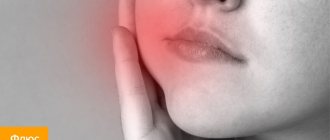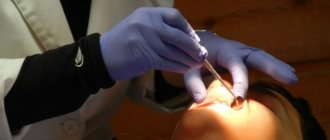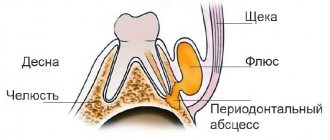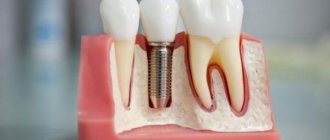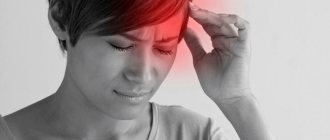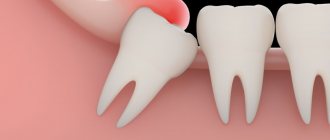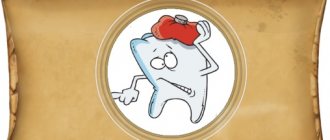The best remedies for toothache
There are many ways to quickly relieve pain at home if there are no pills. Some of them can be used immediately, while others make sense to prepare in advance.
Top 10 funds
- Rinse with a warm (not hot or cold!) solution of salt and soda. Dissolve one teaspoon of salt and soda in a glass of water, rinse every 20-30 minutes. The pain will go away gradually.
- Apply a crushed clove of garlic. You can use garlic mixed with salt.
- Hydrogen peroxide solution You can use a ready-made solution directly from the pharmacy, but it has a specific taste. For this reason, it is better to dissolve 1-2 tablespoons in a glass of water. Do not swallow – the substance is a strong oxidizing agent.
- Strong alcohol Rinse your mouth vigorously with a sip of vodka or cognac on the affected side. In the case of an open canal, a sharp pain may initially appear, which will quickly subside. Not to drink.
- Ice Take a piece of ice from the freezer and wrap it in a napkin or towel. Apply to the sore cheek. If there is no ice, take a piece of frozen meat. It is important to avoid hypothermia.
- Infusion of chamomile or sage Chamomile is brewed at the rate of one or two tablespoons per glass of boiling water and infused. Sage is taken in the same proportions and kept in a water bath for 15 minutes. Rinse your mouth with warm infusion continuously for 20 minutes. To consolidate the effect, the procedure is repeated after 15 minutes. The method is one of the most effective.
- Apple cider vinegar is also a good pain reliever. Moisten a piece of cotton wool and apply it to the tooth.
- A time-tested method is to place a piece of unsalted lard between the cheek and the sore area. If the lard is taken out of the freezer, the cut piece should be warmed to room temperature.
- Ketorol, one of the best drugs that relieve pain. There are restrictions on quantity - no more than three tablets per day. It is not recommended to take for peptic ulcers, gastrointestinal diseases, shortness of breath, bronchospasm, stroke. Pregnancy and breastfeeding are also contraindications.
- Analgin Despite all the negative attitudes towards it, it will quickly help relieve toothache for a while. Not recommended for pregnant and lactating women.
- Raw beets Apply a piece to the sore spot.
- Propolis tincture Moisten a cotton swab with the solution and apply to the tooth, but not to the gum (you may get burned). The product is not suitable for those who have an allergic reaction to honey and its products.
- Take a small onion, chop it very finely. Wrap the resulting mass in gauze (cambric or washed thin chintz) and place it in the ear, which is located on the other side of the diseased area.
- Valerian or horse sorrel leaves. Picked leaves can be chewed or applied to the tooth. The product is a good help when relaxing outdoors in the summer.
- Peppermint The plant has excellent analgesic and vasodilating properties. To reduce pain, just chew the leaves.
- Vodka with garlic Grate two cloves of garlic and mix with 30 ml of vodka. Rinse your mouth vigorously on the affected side. Be sure to spit out the mixture.
- Aspen decoction Pour boiling water over a tablespoon of small wood chips (a little more than a glass), boil for 15 minutes, leave for at least half an hour. Then rinse your mouth every 15-20 minutes until the pain stops completely.
- Rinsing with oak bark decoction is prepared in the same way as aspen decoction.
- Clove oil Apply a cotton wool soaked in oil to the tooth.
- Fir oil A few drops should be applied to a cotton swab or disk and applied to the sore spot. For “blurred”, non-localized pain, you can inhale the vapor.
- Tea tree oil We also apply it to a cotton swab and apply it to the problem area. If necessary, we do a mini-inhalation.
- Plantain Take a fresh plantain leaf and rinse it well. You can knead it, you can chew it. Apply the resulting pulp to the sore spot. As an option, brew the herb (1 tablespoon per glass) and rinse with a warm solution.
- Plantain root Pull out the plantain bush, rinse the roots well and dry. Place a few roots between the tooth and cheek. The second option is to insert the root into the ear canal on the sore side.
- Cinnamon Pour cinnamon powder into warm water to form a dense mass. Apply the resulting paste to the tooth and adjacent gum. Improvement is noticed almost immediately, and after a few minutes the pain goes away.
- Turnip decoction Pour boiling water over two tablespoons of chopped vegetable and simmer for 15 minutes over low heat. Cool until warm and rinse.
- Mint drops Moisten a cotton pad or cotton ball and apply to the tooth.
- Camphor oil is great for helping not only with toothache, but also with gum abscesses. The moistened cotton wool is applied to the tooth or gum. It draws out pus very quickly.
- Place a clove of garlic on the wrist on the side opposite the painful area. Wrap it with a bandage or secure with a bandage.
- Onion peel decoction Remove the peel from a medium onion and pour boiling water over it. Leave until the solution becomes warm. Start rinsing. The product is really very effective - three procedures every 20-30 minutes are enough.
- A piece of incense You should try to place it in the hole of the tooth.
- Dissolve 3 tablets of mumiyo in a glass of warm water, rinse your mouth
- Heart drops Corvalol, valocordin, valoserdin. Apply a moistened piece of cotton wool to the sore tooth.
Folk remedies
Good immunity reduces the risk of developing caries
The bacteria that cause tooth decay are part of the normal microflora of the oral cavity. But with weakened immunity and other accompanying factors, they can cause caries. At home, everyone can prevent this dental disease by strengthening the immune system. This is facilitated by hardening, reducing stress levels, quality sleep at night, proper nutrition, giving up bad habits, and maintaining a normal weight.
The fewer factors that weaken the immune system, the lower the risk of dental caries.
Medicines to relieve toothache
Pharmacological drugs will help relieve pain faster and more effectively than folk remedies. But there are some disadvantages here - contraindications and allergies to any of the components.
Each personal first aid kit has its own set of painkillers. Some are accustomed to using state-of-the-art, expensive drugs, while others still prefer familiar and familiar means. Also read our article about the best tablets for toothache.
Good help to get rid of toothache:
Psychological techniques
Here you will have to concentrate a little and try to pull yourself together.
Massage
You should start with the hand that is located on the side of the diseased tooth.
Prepare ahead of time at home or let it sit just in case
Not a single folk remedy, even the best one, can eliminate the source of pain. As a temporary option, wait until the morning if you get it at night, or as a pain reliever for acute symptoms.
How does caries develop?
Caries is a pathological process that destroys the hard tissues of the tooth. By its nature, it is sluggish and usually occurs under the influence of negative environmental factors or internal problems of the body. Bacteria in the oral cavity produce organic acid that corrodes the enamel, which leads to the development of pathology. The more bacteria, the more acid and, accordingly, the greater the damage.
In this article
- How does caries develop?
- Is it possible to remove caries at home?
- How to remove caries at home using folk remedies?
- What is effective against caries at home?
- The influence of dietary habits on caries
- Good immunity reduces the risk of developing caries
- How to brush your teeth and how to rinse your mouth to prevent caries
- Don't forget about professional hygiene
- Conclusion
Often the disease begins under the surface of the tooth, so in the absence of pronounced symptoms, it is not always possible to notice it at an early stage without the help of a doctor. Early caries looks like a white dot on the enamel surface. At the same time, most people imagine carise as a huge hole in the tooth. Therefore, often a person with early caries does not suspect that a pathological process has begun in his tooth.
A person can know that there is caries in a tooth when the carious cavity expands to the upper part of the tooth or when acute toothache signals this. The most correct and safe option for any dental problems is to contact a dental clinic as quickly as possible. But if for some reason this is not possible, people are looking for a way to cure tooth decay on their own.
What to do if only cold water helps with pain
At a certain stage of the disease (in particular, with gangrenous pulpitis), rinsing with cold water can help. Please note, under no circumstances is it icy. Rather, we are talking about water at room temperature, which is perceived by our body as cold.
It will not be possible to completely remove toothache, but it is quite possible to alleviate your condition a little. When cooled, tissue swelling decreases slightly and the feeling of fullness goes away. When heated, the pain occurs again, some feel it with a vengeance. Regular rinsing every 5-10 minutes will help you get to the doctor, but will not remove the cause.
It is not recommended to use ice water for such purposes, since with a large temperature difference, cracking of the enamel is possible. This effect is especially unfavorable in cases of hypersensitivity. You can try to apply any cold object to the cheek on the sore side, but, again, not for long, to avoid possible inflammation of the trigeminal nerve (and this is another and also not a very funny story).
Important! Do not heat your cheek on the sore side and do not rinse your mouth with hot water. It's not guaranteed to help, and it's sure to make things worse.
Prevention of hyperesthesia
To prevent tooth sensitivity, it is enough to follow the following rules:
- It is better to refuse toothpicks and brushes with hard bristles. Sonic or regular brushes with soft bristles are suitable for cleaning the surface of teeth, and irrigators that do not irritate the gums or damage the enamel are used to remove food debris.
- Remove tartar in a timely manner. However, it is not recommended to whiten your teeth yourself. This is only done in the dental office.
- Do not overuse solid foods; include vitamins and minerals in your daily diet.
- See your dentist regularly. A preventive examination should be performed annually. If there is a predisposition to hyperesthesia - twice a year.
- Use desensitizing pastes that can strengthen your enamel.
- Use a fluoride mouthwash. To achieve the effect, the duration of the procedure should be 2-3 minutes. A course of remineralization will help to avoid unpleasant sensations from drugs with a high content of potassium salts and fluorides.
Increased tooth sensitivity is not a death sentence. With proper and timely treatment, this problem can be eliminated. The main thing is not to let the situation get worse.
Author of the article
What to do if your tooth hurts at night
Physiologically, the most difficult time for a person is from midnight to 5 am. By evening, the level of corticosteroids in the blood decreases, which reduce pain. That is, by night a person is left alone with himself, in this case with his pain.
Unbearable night pain is characteristic of pulpitis. In a horizontal position, blood rushes to the head, increasing pressure on the nerve roots. The “half-sitting” position will help ease the situation a little. Raise the pillow higher so that your head is higher than your torso.
It is unlikely that shallow caries will make itself felt at night, but if you have periodontitis, periodontitis and gingivitis, such manifestations are quite real. The pain can be pulsating, localized, and accompanied by an additional burning sensation. In the worst cases, it feels like half your head hurts.
Mild pain may occur the first night after a nerve or tooth is removed. Take a tablet, rinse your mouth with a soda solution - these simple steps should help you quickly. You can also use folk remedies - clove oil, apply garlic.
As an option for severe pain, apply something cold to your cheek. Ice or even a piece of frozen meat will do. The only thing is to wrap it in a cloth or towel. Take any of the analgesics - Nurofen, Analgin, Ibuprofen, Nise, Tempalgin, Pentalgin, Ketorol.
Need to know! No-shpa tablets do not help against toothache; there is no point in taking them.
In what cases should you consult a doctor immediately?
In some situations, not taking action can have a detrimental effect on your health. Turning to folk remedies or tablets from your home medicine cabinet will result in a loss of time and a deterioration in your condition.
If you notice at night:
- temperature increase;
- severe swelling on one side of the face;
- difficulty breathing and swallowing;
- cardiopalmus;
- loss of sensation in the affected part of the head
We call an ambulance or look for a clinic that provides 24-hour dental care.
Important! Breathing problems are especially dangerous, which may indicate incipient swelling of the larynx.
Other causes of night pain
Quite often a person perceives pain as toothache, although its cause lies in diseases of a fundamentally different nature. This pain also appears or intensifies at night or late in the evening.
We are talking about diseases such as:
- Inflammation of the trigeminal nerve.
The branches of the nerve are located very close to the roots of the teeth; when inflammation occurs, pain similar to toothache occurs. The nature of the pain is nagging and at times quite strong, localized or spreading throughout the jaw. - Sinusitis, sinusitis, otitis.
Accumulated in the sinuses and tissues, purulent accumulations put pressure on the roots of the teeth, causing discomfort. Quite often, a similar situation occurs in children who find it difficult to determine the source of pain. - Stress.
Night toothache occurs as a reaction of the body to constant nervous tension.
Only a doctor can determine the cause. To make a correct diagnosis, you will still have to visit a dentist to rule out diseases of the teeth and oral cavity. Therefore, we recommend not to delay visiting the doctor in order to avoid possible complications as much as possible.
The influence of dietary habits on caries
The destruction of the enamel structure is facilitated by the acid secreted by bacteria. It is formed in large quantities when consuming carbohydrate foods. Therefore, to prevent caries, it is necessary to limit the consumption of sweets and sugar, and after eating sweet foods, be sure to rinse your mouth.
Caries develops faster when the enamel becomes thinner. In order for teeth to be strong and less susceptible to decay, the body must receive sufficient amounts of vitamins and microelements. They can be taken as a multivitamin as prescribed by your doctor, but it is best to take them through food. To do this, the diet must be varied and balanced, it must contain dairy products, fish, cheese, and fresh herbs.
It is useful to eat solid vegetables and fruits (carrots, apples). They mechanically clean the enamel from plaque and stimulate blood flow in the gums. Avoid eating foods and drinks that are too hot or too cold. Due to temperature changes, microscopic cracks form on the enamel, which contributes to the development of caries.
What to do if pills don't help
If you still reach this state or the pain arose suddenly (this no longer matters), painkillers do not help in any quantity, look for a way out of the situation. It is better if you still consult a doctor.
When medications do not help, this means that the inflammatory process has reached such an extent that the tooth must be opened immediately. Wild pain, this is how everyone who has experienced it characterizes this condition. Nothing will help here - neither compresses, nor folk remedies, nor tablets. The accumulated pus puts pressure on the tissue, the pain becomes unbearable.
There are 24-hour dental services at night; find the phone number on the Internet, call and arrange a visit. Toothache is dangerous because it completely exhausts a person. You shouldn't bring yourself to this state.
If you think that you can hold out until the morning or until the appointed time, try to distract yourself or apply psychological techniques on yourself. It's better if you are on the move. Some active actions will shift your attention, and you will feel a little better.
If you notice that your medications are no longer working, you should no longer take them. An overdose and an allergic reaction are possible, in which case you will need to call an ambulance.
Anesthesia and sedation in dentistry
If a patient asks for general anesthesia due to panic, then he can be offered sedation. This is an alternative to "deep sleep". Thanks to it, during therapy the person is half asleep and does not feel pain.
Anesthesia is used very rarely in dentistry, only if a serious and complex maxillofacial operation is to be performed. Its use is also relevant if the patient has a low pain sensitivity threshold and is allergic to all local painkillers.
Why does a dead tooth hurt?
If you have a dead (pulpless) tooth immediately after the anesthetic wears off, this is normal. Pain of moderate to severe intensity can last from 1 to 4 days after removal of the nerve. Unpleasant symptoms can be relieved by taking a painkiller tablet. A competent doctor immediately warns the patient about possible pain and immediately recommends medications. As a rule, this is analgin, ibuprofen, ketorol.
Another reason is the severe stage of periodontitis, causing purulent tissue lesions. Painkillers help only temporarily, you will have to go to the doctor. But this situation also arises in the absence of hygiene and neglect of the disease.
In all other cases, pain in a dead tooth is a pathology caused by incomplete removal of the nerve, poor cleaning of the canals and errors associated with filling. It may manifest itself slightly when biting and pressing, or it may be an immediate shooting localized pain. In some cases, it occurs after a person is very cold or has a cold.
Important! There is only one way out - the sooner you get to the doctor, the better for you. To survive the time “before the doctor”, you can apply a cold object to your cheek. Tablets do not help much in this situation.
Anesthetics used for painless dental treatment
A good local anesthetic must satisfy a number of requirements:
- act quickly;
- have little toxicity;
- not absorbed into the systemic circulation;
- do not irritate the gums.
The selection of pain medication always occurs on an individual basis. The doctor takes into account the client’s age, his state of health, the treatment area, the threshold of pain sensitivity, and the characteristics of the existing disease.
More often than others, doctors use drugs containing articaine or mepivacaine.
Medicines based on articaine
Articaine is a local anesthetic belonging to the group of amides. It is characterized by a pronounced local anesthetic effect. Easily passes through the cell membrane into the nerve fiber. Blocks the conduction of nerve impulses along fibers.
Products containing this compound are used for uncomplicated removal of one or more molars, treatment of carious cavities, and grinding of crowns before prosthetics. It produces the medicine under the following trade names:
- "Ultracaine";
- "Ubistezin";
- "Septanest".
Painkillers containing mepivacaine
Mepivacaine is also an amide group anesthetic. It quickly passes through the lipid layer of the nerve cell membrane, is transformed into a cationic form and reacts with membrane sodium channel receptors. The latter are located at the endings of the nerves. Due to this, the conduction of impulses along nerve fibers temporarily becomes impossible.
Mepivacaine causes all types of local anesthesia:
- infiltration;
- terminal;
- conductor.
It acts very quickly and powerfully. Used for complex removal of radical units, during maxillofacial operations, tracheal intubation, esophagoscopy and bronchoscopy. Mepivacaine is used in the production of a medicine called Scandonest.
Don't put off dental treatment because you are afraid of dental pain. Today, doctors can carry out all manipulations with minimal discomfort for the patient, so there is no need to fear severe pain.
If the tooth is loose and hurts
What to do if the tooth not only hurts, but also becomes loose - we try to relieve the pain using any of the listed methods (tablets, gels, rinsing, folk remedies). And we are planning a visit to the doctor. Perhaps carious processes have begun with simultaneous loosening of the tissues around the tooth. If you get there in time, he can be saved. Similar manifestations are possible with periodontitis, periodontal disease, and gingivitis.
Be careful. When carrying out manipulations, try to be extremely careful to prevent further loosening.
Depending on the diagnosis, the doctor will prescribe treatment, including antibiotics, vitamin therapy, and physiotherapy.
Cost of treatment
A special feature of the estimate for dental treatment for 1 day is the absence of stages of payment and the inclusion of the cost of several hours of sedation. Otherwise, the assessment procedure is no different from the traditional procedure. At the initial consultation, the doctor collects anamnesis, assesses the general condition of the oral cavity and joints, analyzes a computed tomography scan and makes a diagnosis. At this stage, the approximate order of expenses can always be determined. For a more accurate assessment, the opinion of related specialists will be required.
In 90% of cases, patients seek help under the “one visit” program with complex problems, so the cost is summed up from therapeutic, surgical, and orthopedic work.
Sign up for a paid consultation with the leading specialists of the Center or with the Chief Physician Dmitry Valerievich Levin and get an unbiased opinion about the treatment specifically in your case.
If your wisdom tooth hurts
In cases where a wisdom tooth begins to hurt, doctors recommend removing it immediately. If he starts to cut himself, then you can help yourself a little on your own. The process can take almost a year, and the gums may become inflamed, the cheek may swell, and severe pain may occur—it feels as if the entire jaw is being broken out. The temperature can also rise to 38-40°C.
- Within 4-5 days you can take analgesics in accordance with the indicated dosage.
- You can use Metrogil Dent or Dentinorm.
- Regularly, several times a day, rinse your mouth with decoctions of chamomile, sage, calendula, and oak bark.
- A warm solution of salt and soda (one teaspoon per glass of water) will help.
If your tooth hurts after nerve removal
Even several hours after removal of the nerve, pain may be felt in the damaged tooth - when pressing, when biting, or slightly throbbing. This is a normal reaction of the body to intervention.
What to do:
- Take one or two tablets of any painkiller - analgin, baralgin, tempalgin, pentalgin, dexalgin, paracetamol, nise.
- You can carefully anoint the gums with one of the gels - Cholisal, Metrogyl Denta, Kamistad, Solcoseryl.
If the pain does not subside or even intensifies, you will have to return to the doctor.
Why do my teeth hurt?
The main causes of toothache include:
- Caries.
The initial stage is characterized by the destruction of the upper tooth tissues. The pain occurs periodically or one-time - the tooth reacts to pressure, cold and hot. - Deep caries.
The middle tissues of the tooth are affected, the pain becomes more prolonged, aching or throbbing. - Pulpitis.
The result of untreated caries. A nerve has been hit. The pain is severe and incessant. - Periodontitis.
Inflammation of the tissues around the roots of the teeth. It occurs as a consequence of pulpitis or after erroneous medical procedures. The pain is acute, intense. - Residues of food stuck
between teeth, even healthy ones. First there is a feeling of discomfort, then a pressing pain that can cover the entire jaw. Use dental floss or metal (dental) tape.
How to brush your teeth and how to rinse your mouth to prevent caries
Everyone can take care of their dental and oral health without leaving home. To do this, you must follow the rules of hygiene:
- Brush your teeth twice a day using the correct technique for at least two to three minutes.
- Use fluoride toothpaste (if recommended by your dentist).
- After brushing your teeth, be sure to use dental floss to remove food debris and plaque from the interdental spaces.
- Using an irrigator helps to achieve the maximum degree of cleanliness. This device creates a powerful stream of water that removes dirt from areas of the mouth where a toothbrush cannot reach.
- It is important to brush not only your teeth, but your tongue and the inside of your cheeks. Plaque also accumulates on them and bacteria that cause caries multiply.
- Use special rinses after cleaning. They have an antimicrobial effect, preventing the proliferation of pathogenic microorganisms in the oral cavity.

